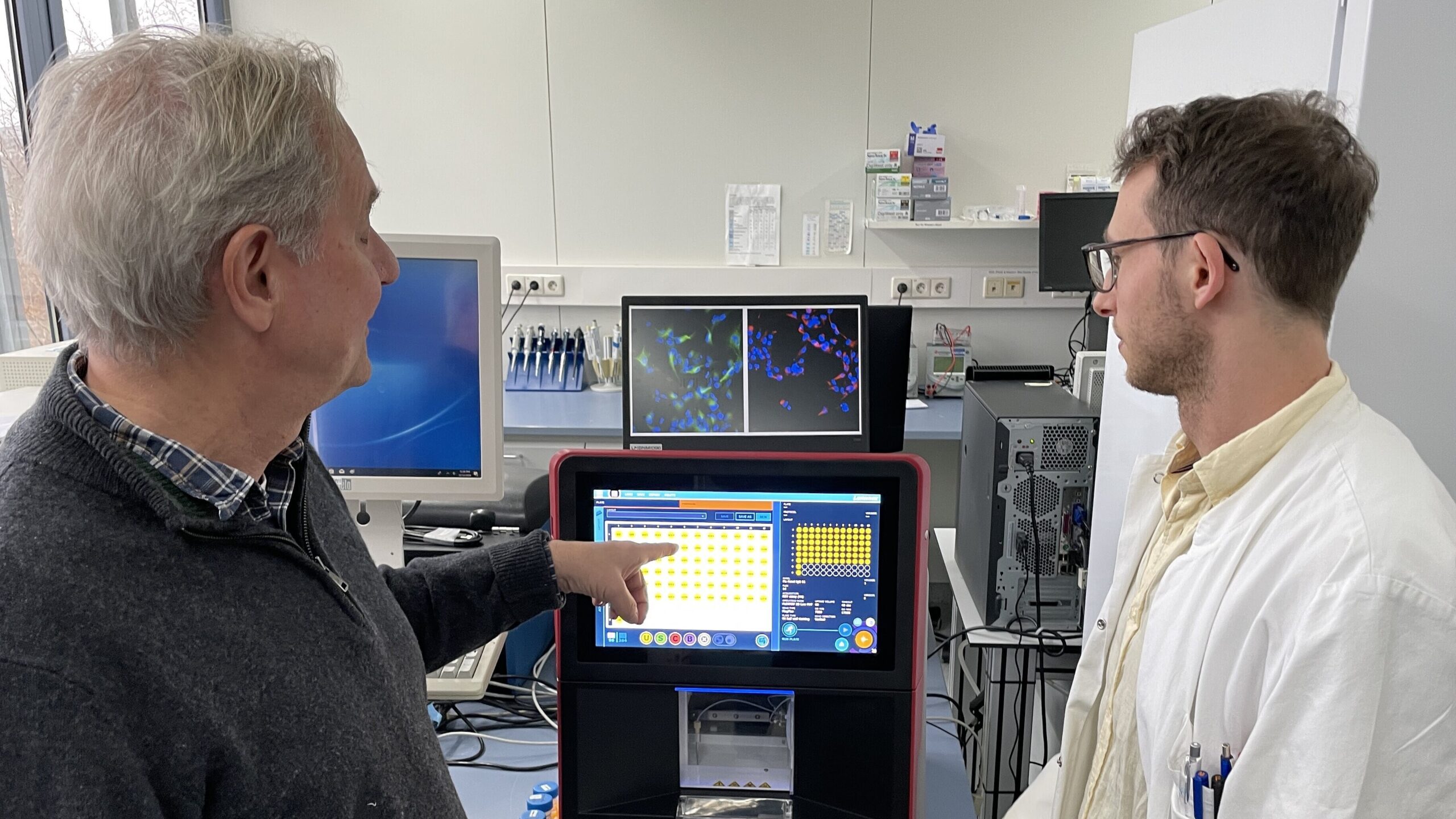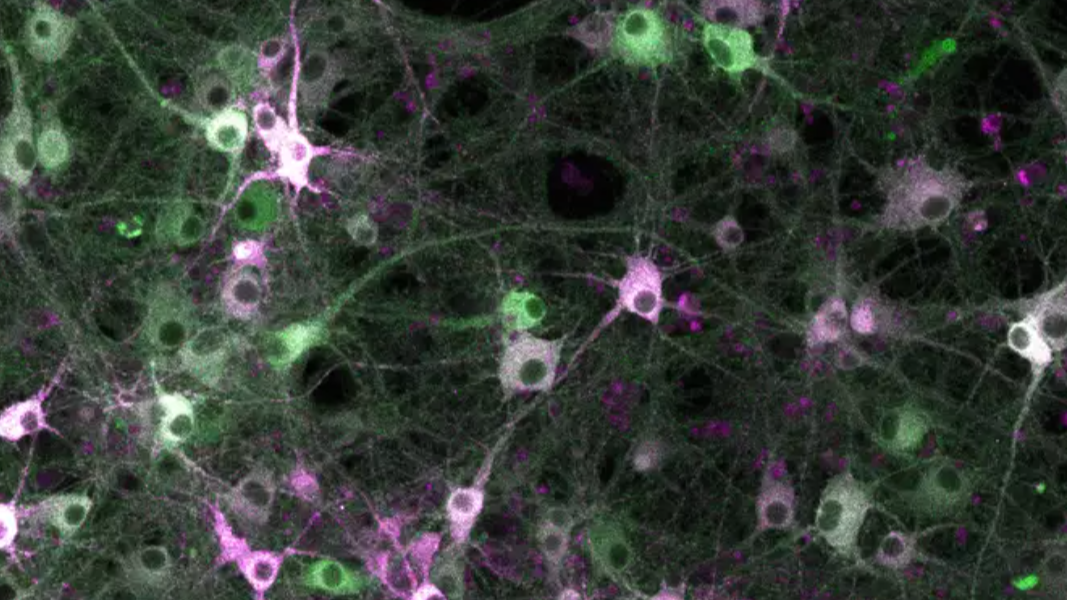Schizophrenia: NMI observes processes in nerve cells

Is it enough to treat the symptoms, or would we rather get to the causes of the illness? Up to now, schizophrenia has mainly been treated symptomatically, as little is known about the exact underlying processes. Researchers at the NMI Natural and Medical Sciences Institute in Reutlingen have succeeded in gaining a better understanding of the driving mechanisms of the disease. This offers opportunities for the development of new drugs. They have published their findings in the journal BMC Psychiatry.
Proteins play a central role in organisms in many respects. If they are incorrectly coded and/or do not carry out their tasks as planned, this can lead to diseases. This also applies to schizophrenia, in which nerve cells (neurons) develop incorrectly.
Early detection of faulty processes
A team of scientists at the NMI led by Aaron Stahl, Prof. Hansjürgen Volkmer and Dr. Markus Templin has now used DigiWest® technology to examine nerve cells during their development. They used patient-derived cells (provided by the University Hospital of Tübingen) from diseased and non-diseased individuals and subjected them to high-precision analysis.
“We have succeeded in observing neurons at an early stage of development. This enabled us to describe at an early stage that diseased cells develop worse and, above all, why,” explains Aaron Stahl, who conducts research at the NMI and the Faculty of Medicine at the University of Tübingen.
What happens in the nerve cells in schizophrenia?
The DigiWest® protein analyses provided an insight into important processes within diseased cells. It is now clear which processes are faulty. These include the repair of defective DNA. Cell cycle regulation, which determines the process of regular cell division, also no longer functions correctly. Finally, the so-called p53 regulation is significantly altered in these cells; it is already known that the protein p53 can trigger serious diseases such as cancer if it is incorrectly regulated. There appears to be a close connection between these malfunctions in the nerve cells and schizophrenia.
A step towards the goal of treating the causes of schizophrenia
“Thanks to our protein analyses, we now know much more about the actual triggers for schizophrenia. This is an important step on the way to possibly one day treating the disease closer to its causes with medication,” says NMI scientist Dr. Markus Templin, looking ahead. However, it will still take some time for science to achieve this goal.
Paper: Patient iPSC-derived neural progenitor cells display aberrant cell cycle control, p53, and DNA damage response protein expression in schizophrenia
Online https://doi.org/10.1186/s12888-024-06127-x
More information on the DigiWest® technology: https://www.nmi.de/biomarker-und-bioanalytik/dienstleistungen/digiwestr-protein-profiling-1




